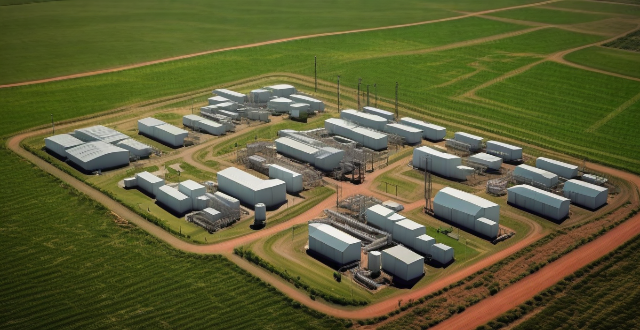Algae-based biofuels offer a renewable energy alternative with high productivity, low environmental impact, and potential to reduce greenhouse gas emissions. They can be grown on non-arable land, require no herbicides or pesticides, and absorb CO2 during photosynthesis. Technological advancements in genetically modified strains and cultivation techniques are improving growth rates and oil yields. However, challenges related to scalability, economic viability, and supply chain reliability must be addressed for widespread adoption as a sustainable energy solution.

Potential of Algae-Based Biofuels in Providing a Renewable Energy Alternative
Introduction
Algae-based biofuels have emerged as a promising renewable energy alternative due to their high productivity, low environmental impact, and potential to reduce greenhouse gas emissions. In this response, we will explore the potential of algae-based biofuels in providing a sustainable energy solution.
High Productivity
*Key Points:*
- Algae can produce up to 10 times more oil per acre than traditional biofuel crops like soybeans or corn.
- They can be grown on non-arable land, reducing competition with food production.
- Algae can be harvested multiple times per year, increasing overall yield.
Low Environmental Impact
*Key Points:*
- Algae cultivation does not require herbicides or pesticides, reducing chemical runoff into waterways.
- The process is water-efficient, as algae can be grown in wastewater or brackish water.
- Algae absorb CO2 from the atmosphere during photosynthesis, potentially offsetting carbon emissions from fuel combustion.
Energy Efficiency
*Key Points:*
- Algae-based biofuels have a higher energy content compared to other biofuels like ethanol.
- The conversion process from algae to biofuel is more efficient, requiring fewer steps and less energy input.
Technological Advancements
*Key Points:*
- Researchers are developing genetically modified algae strains that produce higher amounts of oil.
- Advances in bioreactor design and cultivation techniques are improving algae growth rates and oil yields.
- Extraction methods are being refined to recover more oil from algae without damaging the cells.
Challenges and Considerations
*Key Points:*
- Scaling up production to commercial levels requires significant investment and infrastructure development.
- Economic viability depends on achieving cost parity with fossil fuels through increased efficiency and reduced production costs.
- Ensuring a reliable supply chain for algae cultivation and processing is crucial for widespread adoption.
Conclusion
Algae-based biofuels hold immense potential as a renewable energy alternative due to their high productivity, low environmental impact, and energy efficiency. However, addressing challenges related to scalability, economic viability, and supply chain reliability is essential for their successful implementation as a sustainable energy solution.